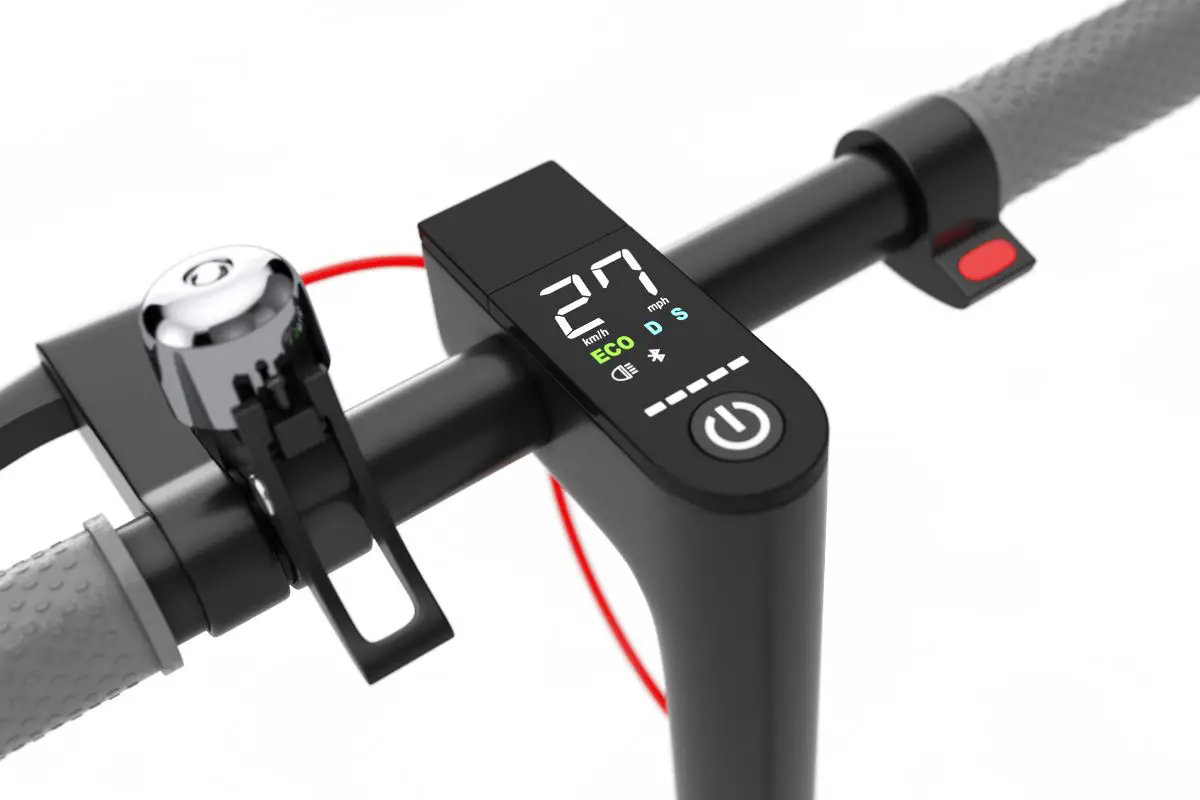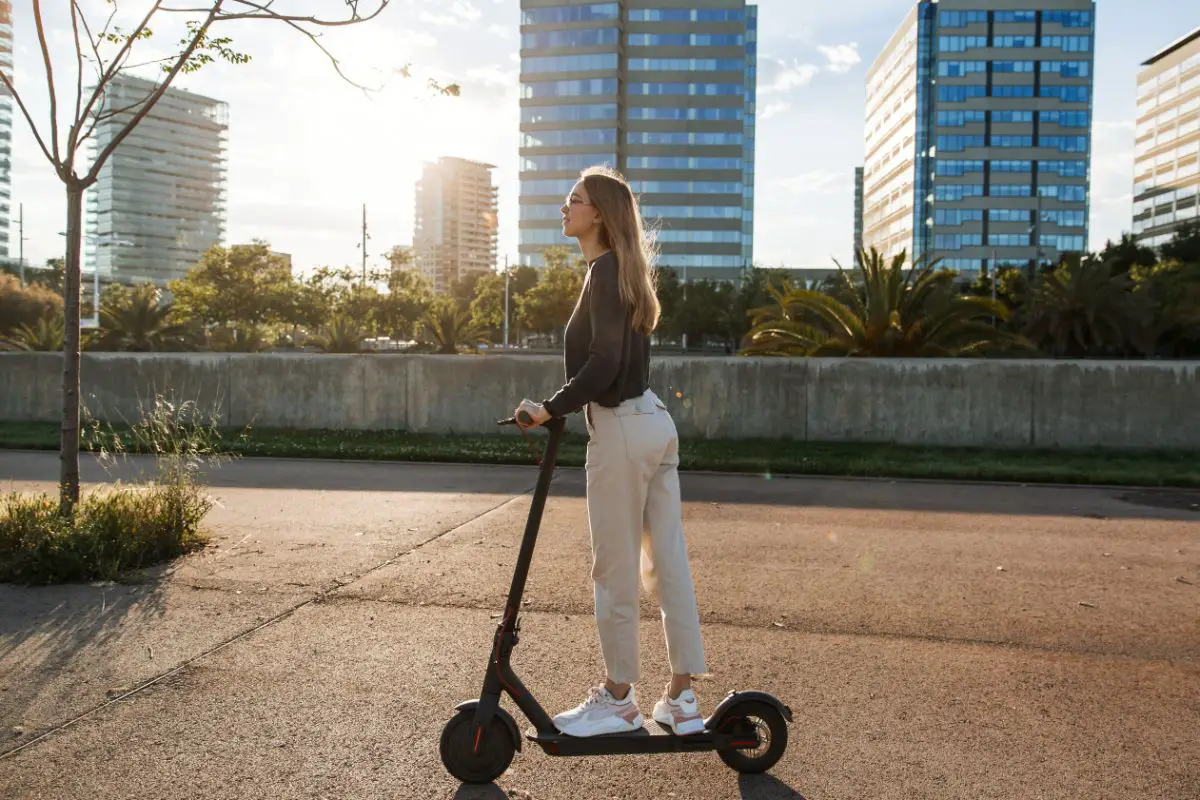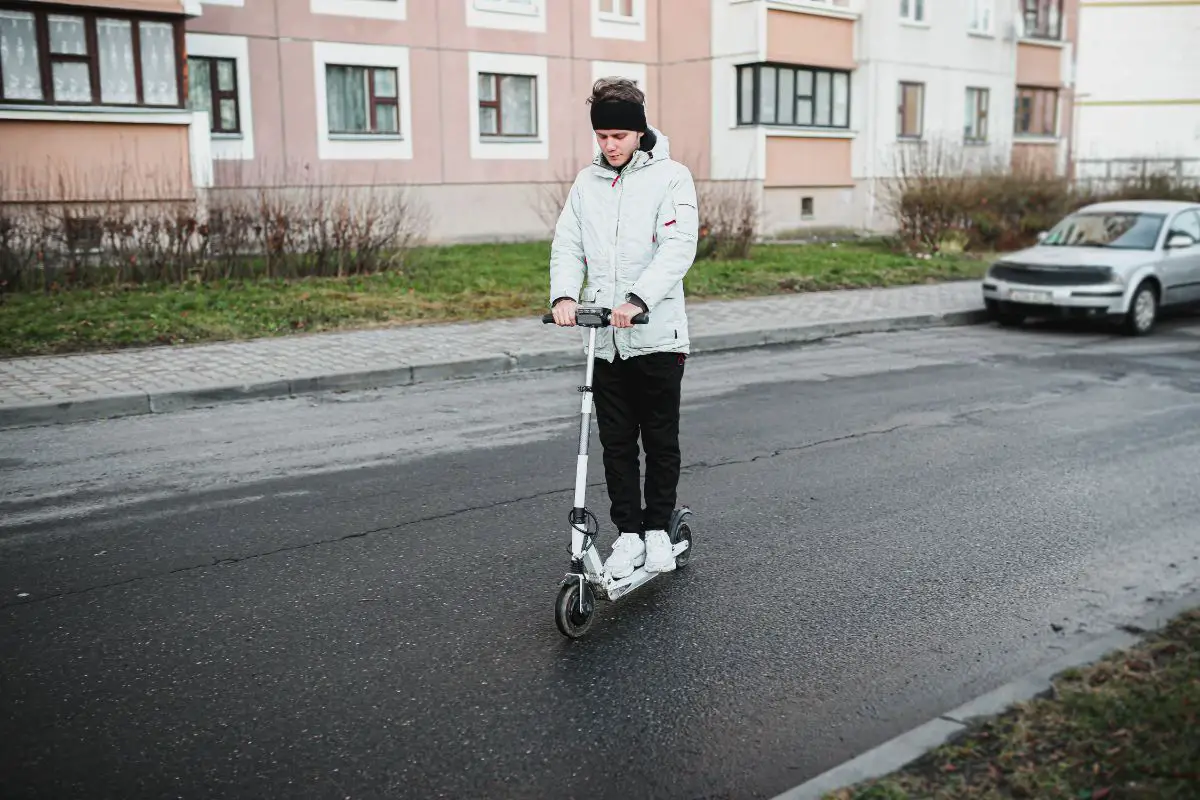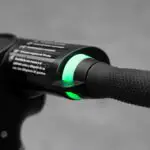
In internal combustion engines or gas engines, the speed of the vehicle is controlled by reducing or increasing the amount of fuel available to burn. But in an electric scooter, the battery provides a constant current. So then, how do you control the speed of an electric scooter?
There is an electric speed controller in your scooter which controls your speed while riding. When you press the throttle, it decides how much power is fed from the battery to the motor. It controls the revolutions per second (RPS) of your electric motor.
You usually find a controller under the deck of your electric scooter. It has a lot of wire which connects to various components of the scooter. Manufacturers designate controllers in terms of current and voltage. If the controller has more current and voltage, then it can drive more powerful electric scooters.
In this article, I will discuss the electric scooter speed controller in detail, which will help you repair and maintain your scooter.
What Is An Electric Scooter Speed Controller?
The speed controller serves as the brain of your scooter. It is an electronic circuit, and whenever you press the throttle, the controller receives a signal and accordingly sends current from the battery to the electric motor. When the motor receives the power, it propels the wheels of your scooter forward.
So, the controller is quite an essential component in your electric scooter. The manufacturers use different types of controllers for brush DC motors and brushless DC motors. In most electric scooters, you find a single controller for a single electric motor.
The controller of an electric scooter provides regenerative braking. When a rider applies a drum brake or disc brake in a scooter, the kinetic energy converts into heat energy which goes to waste.
The controller uses that heat energy and converts it into electric energy. It sends the power back from the motor to the battery. Your battery cannot have 100% charge when this occurs because if the battery is full, it will not hold more charge.
How Does An Electric Scooter Controller Work?
An electric scooter controller is a circuit that has a microcontroller. It receives the input from various components of your scooter and, finally, determines the output.
 The throttle signals the controller to start the motor at a specific speed. The controller is responsible for the speed of the motor and controls it either with the help of a hall sensor or through sending back electromotive force from the motor and then modifying the signal to achieve the speed set by the throttle.
The throttle signals the controller to start the motor at a specific speed. The controller is responsible for the speed of the motor and controls it either with the help of a hall sensor or through sending back electromotive force from the motor and then modifying the signal to achieve the speed set by the throttle.
To rotate the brushless DC motors in an electric scooter, you need to generate magnetic force. But to simply generate the magnetic force will not do.
It will just be a waste of time if you don’t know the position of the rotor. That’s why you need a closed-loop system. This system senses the position of the rotor and sends the data to the controller.
The controller identifies the position of the rotor and sends DC pulses accordingly to the rotor. The microcontroller is responsible for this job. The motor controller uses the electronic driving circuit and various electric switches to control the power flow from the battery to the motor.
Features Of A Motor Controller
- The motor and battery are both dumb devices, so the electric controller acts as a communication medium between the motor and battery. When the motor is at a peak performance level, it demands more current from the battery. But when the battery is about to discharge, it cannot provide current. So, the controller comes in handy in this case.
- The motor controller should have a programmable peak and continuous current ratings that allow it to be used in any motor.
- The motor controller will limit functionality when something goes wrong in the motor or the power drain system. For example, let’s say the temperature rises above the worst-case scenario because of overheating or atmospheric conditions. In this case, the temperature of the devices also increases. As a result, the power dissipation across the circuit increases, which decreases the system’s efficiency.
- The motor controller acts as a bridge between the motor and the battery. If there is any short circuit on either side of the system, the motor controller should sense it and switch off the battery supply immediately. If it is not done on time, then the consequences are very dangerous.
- When the battery discharges completely, it needs an enormous amount of power to charge again. When the battery discharges, the motor controller has to shut down. It should not provide any power to the motor.
Electric Scooter Controller Wiring Connection
- The black and red cable of the controller connects to the battery. The red wire connects to the battery’s positive terminal, and the black cable connects to the battery’s negative terminal.
- You will see three cables that are yellow, green and blue. They connect to the electric motor of your scooter.
- You will see a 5-pin connector or five different color cables (red, blue, green, yellow, black) in your controller. At the end of these cables, you will find a socket that connects to the hall sensor.
- You will see another group of three cables that are red, black and green. This three-pin connector connects to the throttle of your electric scooter.
- The red and white cables are the key switch cables.
- The purple and black cables connect to the brake of your scooter.
- The yellow or green wire connects to the speedometer.
- The black and orange are cruise control wires.
- You will find three-speed control wires: orange, black and blue.
24 Volt Motor Controller
A 24 V 250 W DC brushless motor controller has a current limit of 15 amperes (A) and has low voltage protection of 19 V. The current limiting feature helps protect the controller and motor if they receive too much current.

The overvoltage protection in this controller will maintain the battery life for an extended period. This controller works for both sensor and sensorless brushless DC motors.
This controller is designed mainly for a 24 V brushless DC motor, which operates primarily between 150 to 250 W.
In the controller, you will find various cables. The purple and the red wires are power switch wires. The red and black wire is connected to the battery, while the yellow, green and blue wires are for the motor.
36 Volt Motor Controller
A 36 V motor controller with 250 – 350 W brushless DC motor has low voltage protection of 30 V and a current limit of 18 A.
The controller has various wires. I have listed below how you need to connect these cables to various components of an electric scooter.
| Wires | Color | Meaning |
| Input wires and power switch wire | Red
Purple Black |
Red wire to battery +ve terminal
Purple wire to power switch contact Black wire to battery -ve terminal |
| Motor phase wires | Yellow
Blue Green |
Connect yellow wire to yellow motor phase U wire
Blue wire to blue motor phase U wire Green wire to green motor phase U wire |
| Motor hall Sensor Wire | Red, yellow, green, blue and black | Connect each color wire to the correct place in the motor hall wire |
| Throttle wires | Red
Geen Black |
Red -5 to +5 V output
Green -1 to 4 V signal output Black -ve |
| Speedometer wire | Yellow | Connect the cable to speedometer +ve |
Electric Scooter Controller Repair
If you think your electric scooter controller is not working correctly, you need to check the following things:
- You need to check the key switch or power switch. It should be in switch-on condition.
- If your electric scooter has a fuse, then you need to inspect it. If it turns out this is the issue, you need to remove it and replace it with a new fuse.
- You need to check the wire connection of the controller to various components of your electric scooter. If it has become loose, then tighten it. But if a smell of burnt plastic comes from the wire, you need to change the wire.
- You need to check all the components that connect to the speed controller. If all the components are working correctly, then there is a defect in your controller.
- Test the charger port of your electric scooter. You need first to connect the charger to the power source and then to the charger port. If you see the indicator light on the charger, your scooter’s charger port is working correctly.
- Check the motor properly. Any burnt wires on a motor can cause overheating, which may result in a short circuit. It may also burn out your speed controller.
- Try to test your throttle with a multimeter.
Conclusion
The speed controller is a vital component of your scooter. It decides how much power the battery needs to provide the motor to run. So the torque of the motor depends on the controller.

There are so many color cables in a controller; it can be complex and overwhelming. Each cable signifies something different. So they need to be connected to the suitable component of the scooter.
I hope this article has helped you understand what an electric scooter speed controller is, and it will surely help you maintain your scooter.
Please write any suggestions for this article if you have them – I would love to read your electric scooter speed controller tips!
Happy riding.





